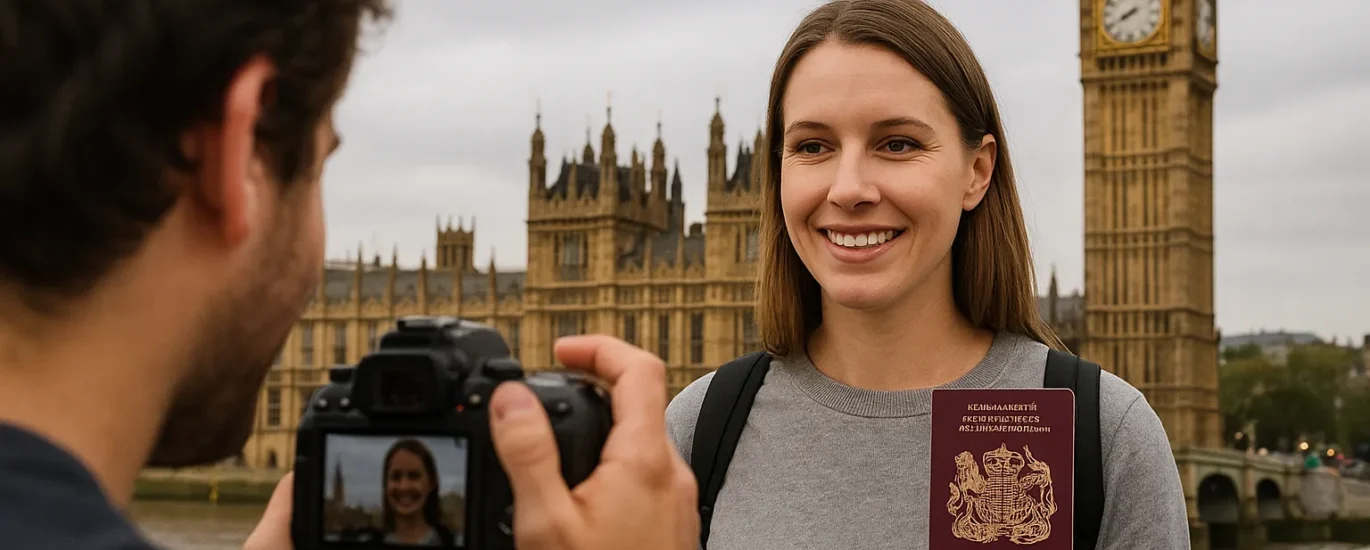London needs teachers, and Australian educators are in high demand. But getting there involves more than booking a flight. You need the right visa, proper qualifications, and a clear understanding of how UK schools operate.
This guide breaks down the visa process, qualification requirements, and safeguarding checks that stand between you and your new classroom. You’ll also discover where to find teaching jobs, what pay looks like, and which contract red flags to watch for.
Reality check: the process is straightforward once you know the steps. Teachers from overseas fill thousands of positions across London every year, and you could be next.
Read on to learn everything you need to know about making the move.
Will the UK Recognise Your Teaching Degree?
Australian teaching degrees are recognised in England, but you’ll need official confirmation before any school will hire you. The Teaching Regulation Agency handles this process for all teachers in the country, including those trained overseas.
The agency assesses your degree against UK standards for Qualified Teacher Status. They’ll review your credentials and teaching experience to confirm you meet their requirements. The sunny side is that most Australian-trained teachers qualify without needing extra courses or training.
You’ll need to submit certified copies of your degree, academic transcripts, and evidence of your classroom experience. The process takes a few weeks and costs roughly £140. You can apply from Australia before you even book your flight, which speeds things up later.
QTS is important because schools look for it before offering contracts or visa sponsorship. Yes, a handful of positions might accept “pending QTS” status, but qualified candidates get priority. Bear in mind that getting this confirmation early puts you ahead of other applicants and shows schools you’re serious about the move.
With your qualifications verified, the next step is sorting out your visa requirements.
Getting Your UK Teacher Visa Sorted

You need a skilled worker visa to teach legally in England. This visa is built for overseas professionals filling roles that local candidates can’t cover.
Let me walk you through how it works.
Are You Eligible?
You need a confirmed job offer from a school that’s a licensed sponsor. For instance, most schools across London and England hold sponsor status, so finding eligible employers isn’t too hard.
What’s more, teachers benefit from lower salary thresholds compared to other professions. Your role must pay at least £25,000 or meet the national pay scale rate for teachers in England, whichever is higher. In practice, qualified teacher salaries start around £32,916 outside London, with higher rates in the capital depending on the area.
You’ll also need to prove your English ability, but Australian teachers meet this requirement automatically. The visa lasts up to five years. You can extend it later or apply for settled status down the track.
Understanding School Sponsorship
Since you are going as a teacher, you need to know that your employer handles most of the sponsorship process for you. They’ll issue a Certificate of Sponsorship, which is a reference number for your visa application.
Most schools pay a sponsorship fee, though some pass part of the cost to you. In such cases, it’s best to clarify who pays what before you sign anything.
Costs and Timeline
Visa fees sit at £769 when you apply from outside the UK for positions up to three years. You’ll also pay the Immigration Health Surcharge, which costs £1,035 per year. Most applications get processed within three weeks, so apply early to avoid delays.
Your visa confirms you’re eligible to work, but there’s one more requirement before you can step into a classroom.
Background Checks You’ll Need

Before you can work in any London school, you need to complete safeguarding checks. Schools across the UK take child protection seriously, and background checks are required for every teacher.
You’ll need two separate checks before you can start:
- Australian Federal Police Check: Start with a national police certificate from the AFP before leaving Australia. Note that schools want your home country’s criminal history on record. Here’s what you need to know: processing takes about two weeks and costs around $42, plus you’ll need official apostille certification from the Department of Foreign Affairs.
- DBS Check: Your UK employer arranges the Disclosure and Barring Service check after you arrive in England. Unlike the AFP check you handle yourself, the school manages this one and typically covers the cost. In this case, processing takes two to four weeks once submitted.
- Timeline Counts: Beginning your AFP check early prevents contract delays down the track. Some schools won’t finalise your paperwork until they’ve reviewed both checks, so getting ahead saves stress and keeps your start date on track.
Your safeguarding paperwork clears the way, but now comes the practical part: finding actual teaching positions.
Finding Teaching Positions in London
Where do you find teaching jobs in London? Education jobs are plentiful, but knowing where to look saves time and frustration.
Dedicated recruitment sites like Tes list thousands of positions across London and England. You can filter by subject, salary, and location to match roles with your qualifications. Alongside that, many schools post directly on these platforms, from primary academies to secondary institutions.
Recruitment agencies place many overseas teachers in UK schools every year. Agencies like Teach First and Hays Education work with schools seeking staff. They handle application paperwork and match you with positions that suit your experience level.
School websites are worth checking too. Many London schools post vacancies on their own careers pages before listing them elsewhere. If you’ve identified schools you’d like to work for, visit their sites regularly to catch openings early.
We have covered the platforms where you can apply. Let’s touch down on what your contract should look like.
What Your Contract Should Look Like

Your teaching contract should include clear terms on salary, working hours, notice periods, and any additional benefits. Contract terms vary between schools in London, so knowing what’s standard helps you spot problems before you sign.
Focus on these two areas:
Salary Expectations for Overseas Teachers
Teaching salaries in England follow a national pay scale. Qualified teachers in Inner London start at £40,317, whilst positions outside London begin around £32,916. Besides, pay increases as you gain experience and move through the scale.
Most contracts run term time only, covering 39 weeks with pay spread across the year. On top of your base salary, schools may offer extra for leadership roles, and subjects like maths and science often pay more.
Your salary should meet the skilled worker visa threshold of £25,000 for teachers. Most teaching positions qualify automatically.
Red Flags to Watch Out For
Watch for long notice periods that stretch beyond one term. These clauses can trap you in a role even if the school isn’t working out well for you.
We suggest that you check accommodation arrangements carefully because some contracts deduct rent directly from your salary at above-market rates. It is important that you calculate your take-home pay after all deductions before signing anything.
Getting your contract right from the start saves headaches later and sets you up for a smoother transition to London.
Start Your London Teaching Journey
Moving to London to teach opens up real opportunities for Australian educators. You’ll gain international experience, work with students from different backgrounds, and grow your skills in one of the world’s top education systems.
The process needs careful planning. Listen to us, get your qualifications recognised early, understand visa requirements, and review contract terms before you commit. From our experience, teachers who prepare well settle into their new roles faster and with fewer headaches.
Juergens Meyer helps international teachers make smooth transitions to UK schools. We provide support throughout the process because we understand the challenges overseas educators face.
Contact our team today to discover how we can help you build your teaching career in London.





